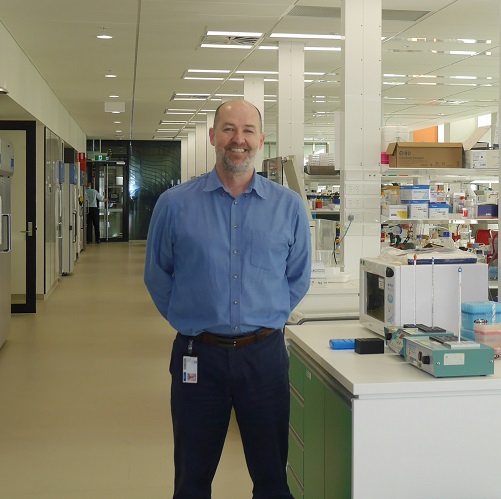31 October 2023

The University of South Australia is seeking public support for vital brain cancer research that could potentially save hundreds of lives.
Each year, approximately 2000 people in Australia are diagnosed with 100 different types of brain cancer and most of them – 78% – do not live beyond five years.
The NeuroSurgical Research Foundation (NRF) has generously provided almost $900,000 in 2023 for 15 projects being undertaken by UniSA researchers based at the Centre for Cancer Biology (CCB). The grants, made possible by several donors and partnerships, will help kickstart the research, but every little bit counts.
Two projects currently in the pipeline are a paediatric brain cancer biobank and new immune-based therapies for glioblastoma, the deadliest form of brain cancer.
The paediatric brain cancer biobank is expected to improve treatment outcomes for 120 Australian children diagnosed with the deadly disease each year. A total of $250,000 has been pledged by the NRF, Wilkins Family Foundation and the Harvey Foundation to support this research from 2023-2025.
UniSA Research Professor Stuart Pitson, Head of the Molecular Therapeutics Laboratory at the CCB, says the living biobank will enable researchers to find better therapies with fewer side effects for children.
“While some brain tumours are incurable (diffuse midline glioma), others can be treated, but the harsh side effects of surgery, chemotherapy and radiotherapy often lead to lifelong issues for the young patients,” Prof Pitson says.
The biobank contains fresh tumour material resected from the affected children, as part of their normal therapy, into patient-specific cell lines and organoids.
“The cell lines are isolated tumour cells growing on their own in a laboratory dish and can be tested for their sensitivity to new therapies.
“Organoids are also grown in a laboratory dish but are clusters of both normal and tumour cells. These ‘normal’ cells can support the growth of tumour cells and make them more resistant to therapies, so we need to examine how this happens and work out ways to prevent it.”
Prof Pitson says it is essential to develop individualised cell lines and organoids in a biobank because all tumours are different and don’t all respond to the same treatments.
“So, the more tumour material we can access, the greater chance we have of developing new therapies and understand which patients might respond accordingly.”
In a separate project, $300,000 provided by the James and Diana Ramsay Foundation (JDRF) will help CCB researcher Associate Professor Lisa Ebert to develop new immune-based therapies for glioblastoma, the deadliest form of brain cancer.
Assoc Prof Ebert will spend the next three years developing CAR-T cell therapies for glioblastoma, in collaboration with the Royal Adelaide Hospital. Her team will isolate T cells (part of the body’s immune system) from the patient’s blood and genetically engineer them to kill the cancer, before returning them to the bloodstream.
Two brain cancer CAR-T cell trials are currently running. Further research is required into how these treatments work and in what scenarios.
To support these two projects, please go to: https://giving.unisa.edu.au/cancer-research/
To enquire about the brain cancer clinical trials, please email: HealthRAHMedicalOncology@sa.gov.au
International Brain Tumour Awareness Week runs from 29 October-4 November.
Media contact: Candy Gibson M: 0434 605 142 E: candy.gibson@unisa.edu.au




